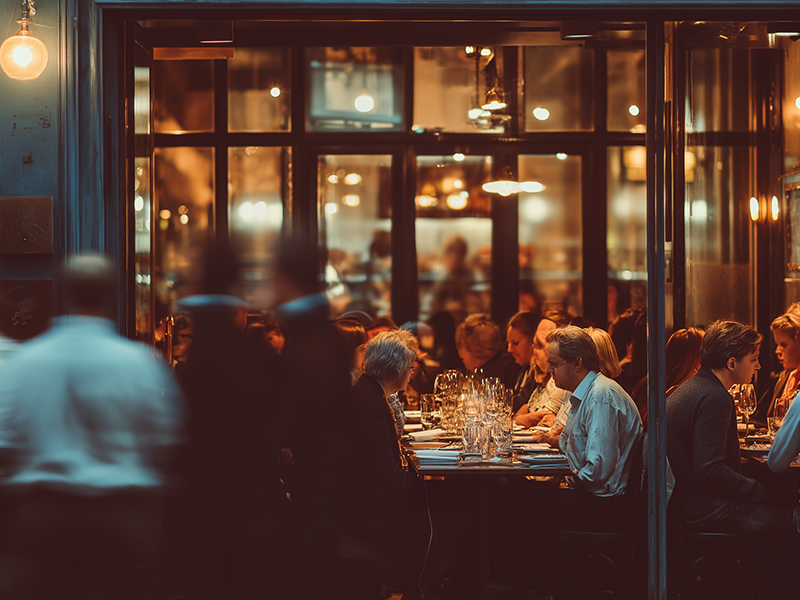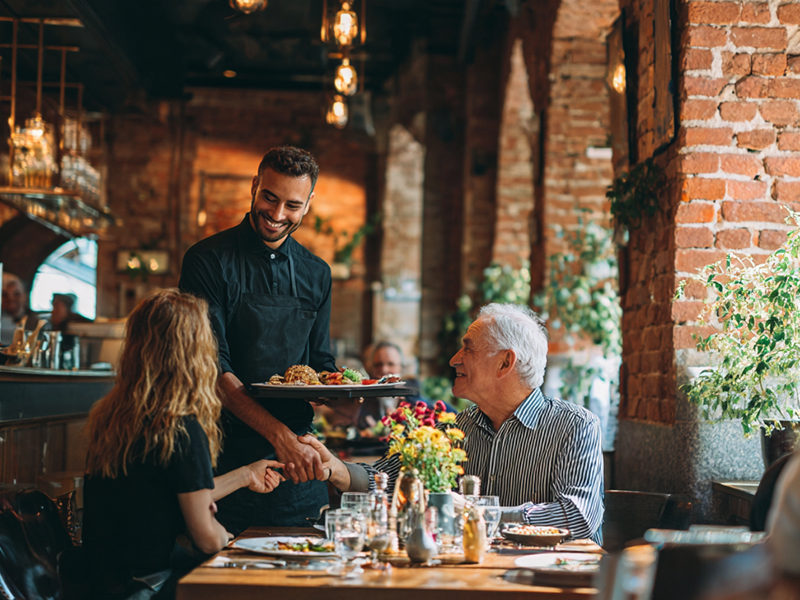ngside Google Maps. Plus, Yelp reviews feed into other platforms, appearing on Apple Maps, Bing, and even influencing your Google Business Profile ranking.
The brutal reality? A single bad Yelp review can cost you 30 customers. But here's the flip side: managing your Yelp presence correctly can be the difference between a slow Tuesday night and a waitlist.
As Yelp states in their official support documentation: "Yelp's recommendation software is designed to highlight reviews from people who want to share their genuine experiences—without being asked or tempted." Understanding this philosophy is crucial for restaurant owners who want to work with the platform rather than against it.
The Five Yelp Mistakes That Are Killing Your Restaurant
1. Playing Defense Instead of Offense
Most restaurant owners only think about Yelp when something goes wrong. Big mistake. The best time to ask for a Yelp review is right after someone posts a photo of their meal on Instagram with your location tag.
I've seen this work beautifully at a local coffee shop that trains baristas to mention, "If you loved your latte art, we'd appreciate a quick Yelp review!" Right when customers are feeling good about their experience.
2. Responding Like a Corporate Robot
"Thank you for your feedback. We take all comments seriously and will use this to improve our service."
Stop it. Just stop.
Your response should sound like you, not like you copy-pasted from a customer service manual. When a customer complains about slow service, acknowledge it like a human: "You're absolutely right, we were slammed that night and our timing was off. Come back this week and I'll make sure your experience is what it should be."
3. Ignoring the "Boring" Positive Reviews
Everyone responds to the one-star disasters, but what about the four-star reviews that just say "Good food, nice atmosphere"? Those need responses too.
Thank them specifically. "So glad you enjoyed the atmosphere we've worked hard to create. Hope to see you back for our new seasonal menu!" This shows future customers that you care about all feedback, not just damage control.
4. Not Leveraging Yelp's Business Tools
Yelp for Business isn't just about reviews. You can add photos, update hours, post about special events, and even offer deals to Yelp users. I've seen restaurants increase foot traffic by 25% just by keeping their Yelp profile fresh with mouth-watering food photos.
5. Thinking You Can Game the System
Please don't ask your friends to write fake reviews. Yelp's algorithm is smarter than you think, and getting caught will torpedo your credibility. Plus, authentic reviews from real customers always sound different than reviews from your cousin who's never actually eaten at your place.

The Yelp Recovery Playbook for Restaurants
Step 1: Audit Your Current Situation
Pull up your Yelp page right now. What's your overall rating? How many reviews do you have? When was your last review? If you're below 3.5 stars or haven't had a review in months, you need immediate attention.
Step 2: Address Problem Reviews Strategically
Don't respond to every single negative review the same day. It looks desperate. Space out your responses over a few days, and make each one count.
For legitimate complaints, own the mistake and offer a solution. For unreasonable reviews (and we all get them), stay professional but don't be afraid to politely present your side of the story.
Step 3: Build a Review Generation System
This is where most restaurants fail. You can't just hope people leave reviews. You need a system.
Train your staff to identify happy customers. The person taking photos of their food, the table that's clearly celebrating, the regular who just tried your new menu item and loved it. These are your review opportunities.
Create physical and digital prompts. A small tent card on tables, a note at the bottom of receipts, even a QR code that links directly to your Yelp page.
Step 4: Use Reviews to Improve Operations
Reviews are free market research. If three people complain about long wait times, maybe you need another server during peak hours. If customers consistently mention your amazing bread, feature it more prominently in your marketing.
I worked with a small Italian restaurant that kept getting reviews about their "hidden gem" status. Instead of staying hidden, they leaned into it with marketing that said "The neighborhood secret everyone's talking about."
The Psychology Behind Yelp Reviews (What Really Motivates Customers)
Understanding why people leave reviews helps you get more of them. Most customers review when they're either extremely happy or extremely upset. Your job is to catch people in that "extremely happy" moment.
The best time to ask for a review? Right after you've solved a problem or exceeded expectations. Someone sends back a steak that's overcooked, you replace it immediately with a perfectly cooked one, and comp their appetizer? That's your moment.
Yelp Reviews vs. Google Reviews: The Real Strategy
Don't put all your eggs in one basket. Google Business Profile reviews might get more visibility in search results, but Yelp reviews often contain more detailed feedback and photos.
Your goal should be strong performance on both platforms. Many customers check multiple review sites before choosing a restaurant, especially for special occasions or when trying somewhere new.
How to Turn Bad Reviews into Business Opportunities
This might sound crazy, but some of my client restaurants get more customers after a thoughtful response to a bad review than from five good reviews.
When you handle criticism professionally and offer genuine solutions, potential customers see that you care about the experience and will make things right if something goes wrong. That's powerful reassurance.
One coffee shop I worked with turned a scathing review about their "inconsistent latte art" into a social media campaign featuring their baristas practicing latte art, with the tagline "Always perfecting our craft." They showed the process, acknowledged they're human, and turned criticism into personality.

The Future of Yelp and Restaurant Reviews
AI-powered search is changing how people discover restaurants, but reviews remain crucial. ChatGPT and Google's AI often pull from review data when recommending restaurants. The key is having enough quality reviews with specific details about your food, service, and atmosphere.
Bars and coffee shops especially need to pay attention to this trend. When someone asks AI for "the best espresso in downtown," the systems look for reviews that mention specific coffee details, not just "great coffee."
Your 30-Day Yelp Action Plan
Week 1: Audit your current Yelp presence and respond to any unaddressed reviews from the past six months.
Week 2: Train your staff on when and how to ask for reviews naturally.
Week 3: Update your Yelp business profile with fresh photos and current information.
Week 4: Implement a systematic approach to review generation and response.
The restaurant business is tough enough without ignoring one of your most powerful marketing tools. Yelp reviews aren't going anywhere, and the restaurants that master them will have a significant advantage over those that don't.
Frequently Asked Questions About Managing Yelp Reviews for Restaurants

-p-500.jpg)
